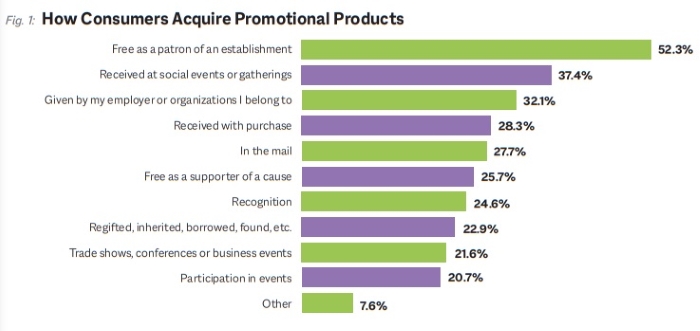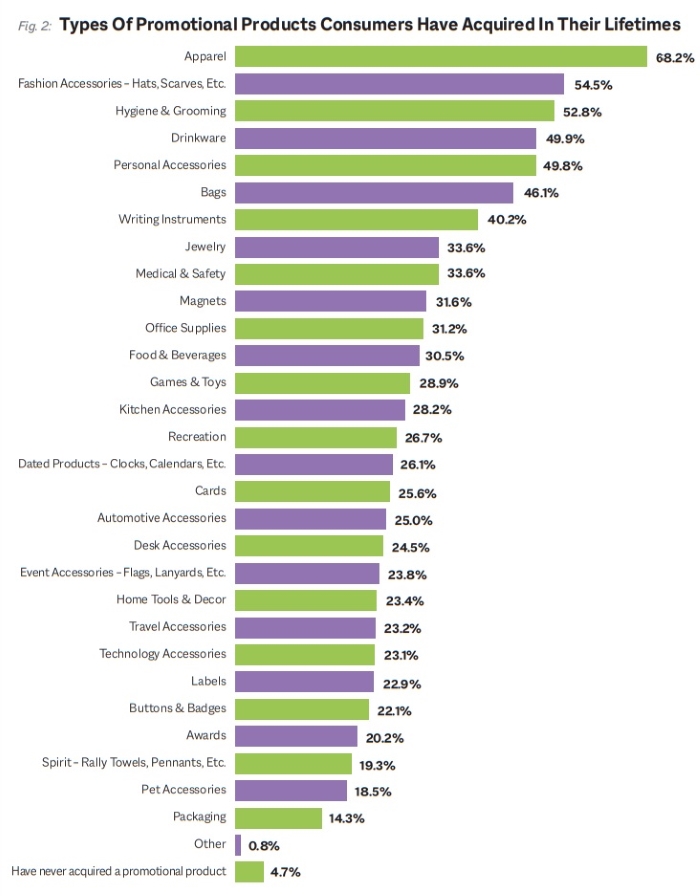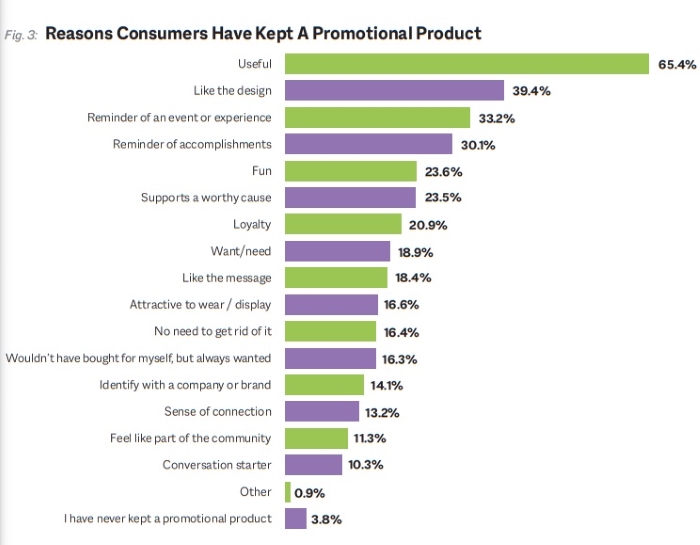Hungry For Promo

Based on consumers’ insatiable appetite for promotional products, it’s safe to say that the industry has rebounded from the COVID-19 pandemic. After all, industry sales reached a record-breaking $25 billion in 2022, according to PPAI data.
End users believe in the value of branded merchandise. Nearly three quarters (74.6%) agree that promotional products are a good way to learn about sales and events, and 72% agree that they’re helpful for learning about new businesses in the area, according to PPAI’s 2023 Consumer Survey.
Furthermore, 78% of consumers enjoy receiving free stuff from companies and brands they love, and nearly 73% want to receive promo products more often.
“The data supports what we in the industry have known to be true – branded merchandise is an advertising medium that has great reach and incredible brand impact,” says Nichole Stella, CEO of Altitude Group and its subsidiary, Philadelphia-based AIM Smarter, ranked the No. 26 distributor in this year’s PPAI 100.
The online survey captured insights from a nationally representative sample of more than 3,000 U.S. consumers between the ages of 18 and 78. The data collected from the survey indicates the power of promo, highlighting its ability to create emotional attachments to brands and how consumers prefer branded merch to other forms of advertising.
“After a robust year of organic growth for the industry in 2022,” Stella says, “the data points to a continued upward trend of consumers who appreciate high-quality promotional products.”
Even more encouraging, she adds, is the connection between consumers’ positive experiences with promo products and the high perceived value and quality that they associate with the corporate brand providing them.
“Advertising goals are being achieved via companies’ promotional products campaigns,” Stella says. “Consumers want to engage more deeply with the company providing the product and are even willing to shift their spend to that company because they received the promotional item.”

Changes Since COVID-19
It’s not surprising that in 2021 – with government-mandated COVID-19 restrictions still preventing in-person gatherings in many places across the country – consumers said the primary way (36%) that they had received promotional products was through the mail. Now that most businesses have resumed normal operations, that percentage has decreased nearly 10%, according to the survey. Conversely, traditional methods for receiving promo items have regained momentum.
For example, more than half (52.3%) of consumers have scooped up branded products that were free to use or take home as a patron of an establishment (see Fig. 1) – a massive increase from the mere 16% who said they had done so in 2021. Meanwhile, 32% of consumers say they’ve been given company-branded products from their employer or an organization they belong to, nearly triple that (12%) of two years ago.

“Our sales certainly support this,” says Drew Davis, owner of Denver-based distributor Specialty Incentives. “For the last two years, the business press has regularly written about the ‘war for talent’ and how competitive the human capital market has been. As employers continue to recognize, celebrate and welcome new members to their teams, branded merchandise can do all of this and more.”
Apparel (e.g., shirts, polos, pants, dresses, activewear, outerwear, etc.) is the No. 1 promotional product (68.2%) that consumers have acquired in their lifetime (see Fig. 2). It’s quite the shift from 2021, when writing instruments (72.6%) and magnets (68.2%) topped the list. They’ve since dropped to 40.2% and 31.6%, respectively.
“Our apparel business grew considerably in 2021 and 2022, with most of it directed towards employee retention,” says David Bywater, president and general manager of Bankers Advertising Company, a distributor based in Iowa City, Iowa. “Our advertising calendar business also grew in both years – both as a distributor and as a supplier. The trends continue to suggest our medium is growing in use, which is always good.”
Promo Engagement Increases
Consumers’ engagement with branded merch is also on the rise since the pandemic, as 60% now reference promo products for information, more than double that (24%) of two years ago.

More than half (52%) say their initial reaction upon receiving a promo product is to Google or look up the website of the company that gave it to them, which is up from 40% in 2021. Furthermore, nearly half (47%) say they’ve posted on social media about a promo item they’ve received, an increase from 36% in 2021.
Additionally, two-thirds (66%) of consumers say they can name the advertiser on a logoed product they’ve received in the past 12 months. Two years ago, only 28% said they could.
“This is a great measure of how the industry continues to evolve and emphasize with clients the power of promotional products as an advertising and messaging medium,” Davis says. “Quality items result in retention by the recipient. Salesperson training and focusing on results versus simply getting a sale is paying off.”
The data also spotlights how effective the marriage between high-quality promotional products and beloved brands can be. Case in point: 84% of consumers say they use promo products when they represent brands or causes they know and like. Meanwhile, 70% of consumers tend to equate the quality of the promo product they’ve received with the reputation of the company that gave it to them, jumping 30% from 2021.
“A business’ brand is represented 24/7 and in mediums and methods often outside of their direct control,” Davis says. “A business isn’t only known for the work it produces, but also its reputation, employee influence and initiatives it supports. It’s a natural human instinct to associate quality branded gifting with an increased perception of reputation. People like receiving nice things and often view this as how the giver feels about them.”

While 70% of consumers say they’re likely to switch brands if they’ve received a promotional product they really like from a company they haven’t done business with before, one 20-plus-year industry veteran argues that companies can’t rely on promo products alone to win over customers.
“I’ve never believed that a promotional product will be the driving force for most people to do business with a company,” says Rama Beerfas, MAS, owner of Santee, California-based distributor Lev Promotions. “It’s about a holistic marketing program where the promotional product enforces a mental or emotional connection to the brand by serving as a concrete reminder of a conversation or experience.”
Corrigan is a news editor at PPAI

